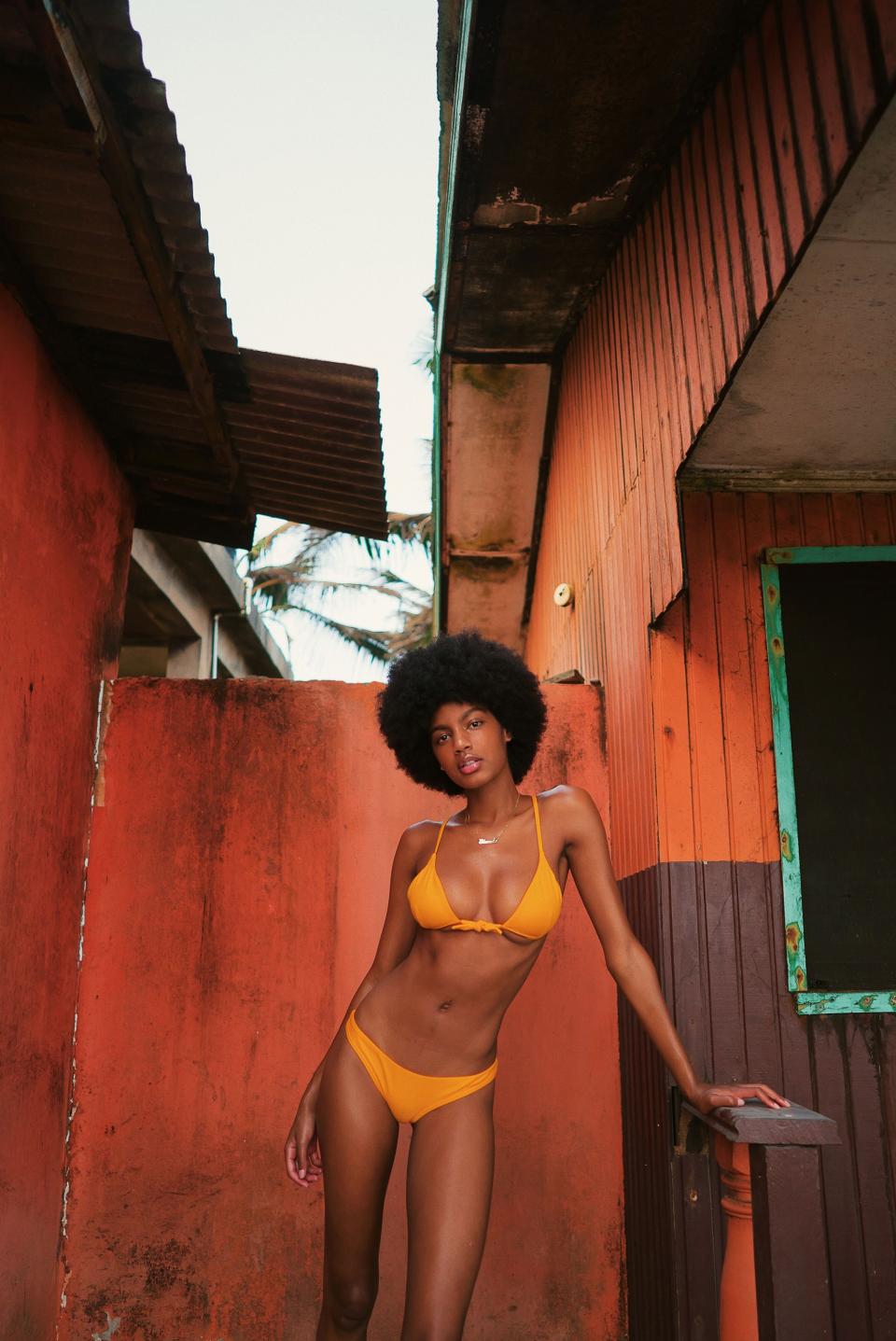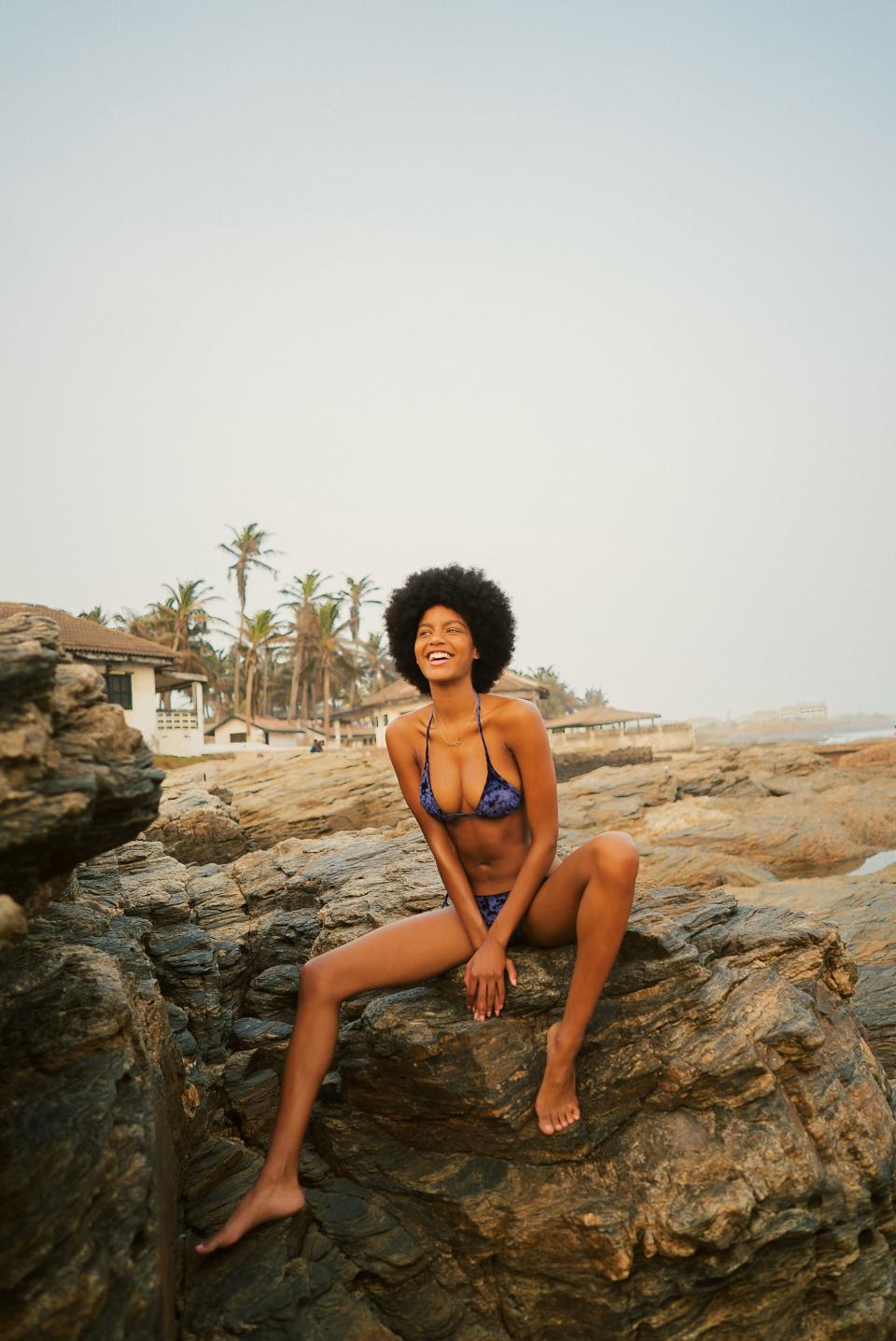Ebonee Davis on Reclaiming Her African Identity and Seeing Ghana for the First Time
When Ebonee Davis decided to head to Ghana late last year, she could not have guessed how much it would change her. “Prior to landing, I really had no idea what to expect,” she shared on the phone from her New York home. “I had no idea what Accra would look like or how it might be.” The model is a familiar figure in fashion circles, having walked the runway for Pyer Moss and appeared in ads for behemoths like Fendi and Calvin Klein. But her most important work has taken place farther afield: Through personal writing and impassioned TED Talks, the activist has repeatedly spoken up about discrimination in the fashion industry and the many challenges models of color must face. It makes perfect sense that she would use a rare period of rest to engage in something meaningful. When an invitation arrived from Very Temporary, an Accra-based artists community, she eagerly accepted.
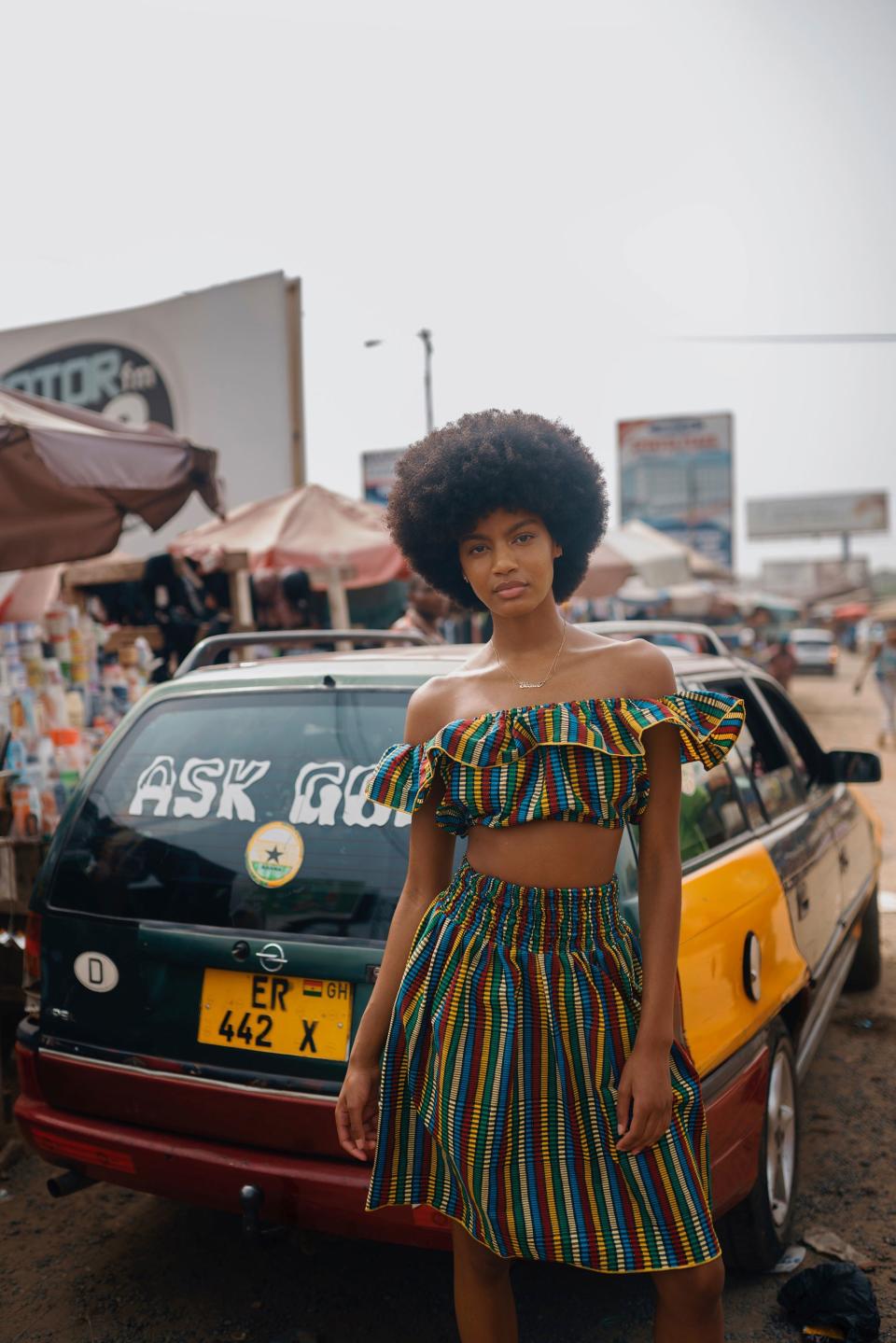
For Davis, whose ancestors were taken to the U.S. by the Atlantic slave trade, this trip offered the chance to connect with her roots and reclaim the heritage her family had been denied. “As a black person living in America, I’ve often felt disconnected from a sense of identity, or I’ve felt like I’ve had to take on an identity that was given to me,” she said. “Our culture prior to slavery was unknown to me; it was erased. I wanted to go back to the motherland, so I could begin to put the pieces together and discover for myself.” Her journey coincided with a painful anniversary: 400 years since the first recorded landing of a slave ship, in Point Comfort, Virginia, which began the Middle Passage, the forcible transport of enslaved Africans and the start of a shared and tragic history that would change the lives of millions. In Ghana, the event was marked as the “Year of Return,” an initiative endorsed by the country’s president, Nana Addo Dankwa Akufo-Addo, that gave those connected with the diaspora a chance to address their past head-on, while experiencing the nation and its singular beauty.
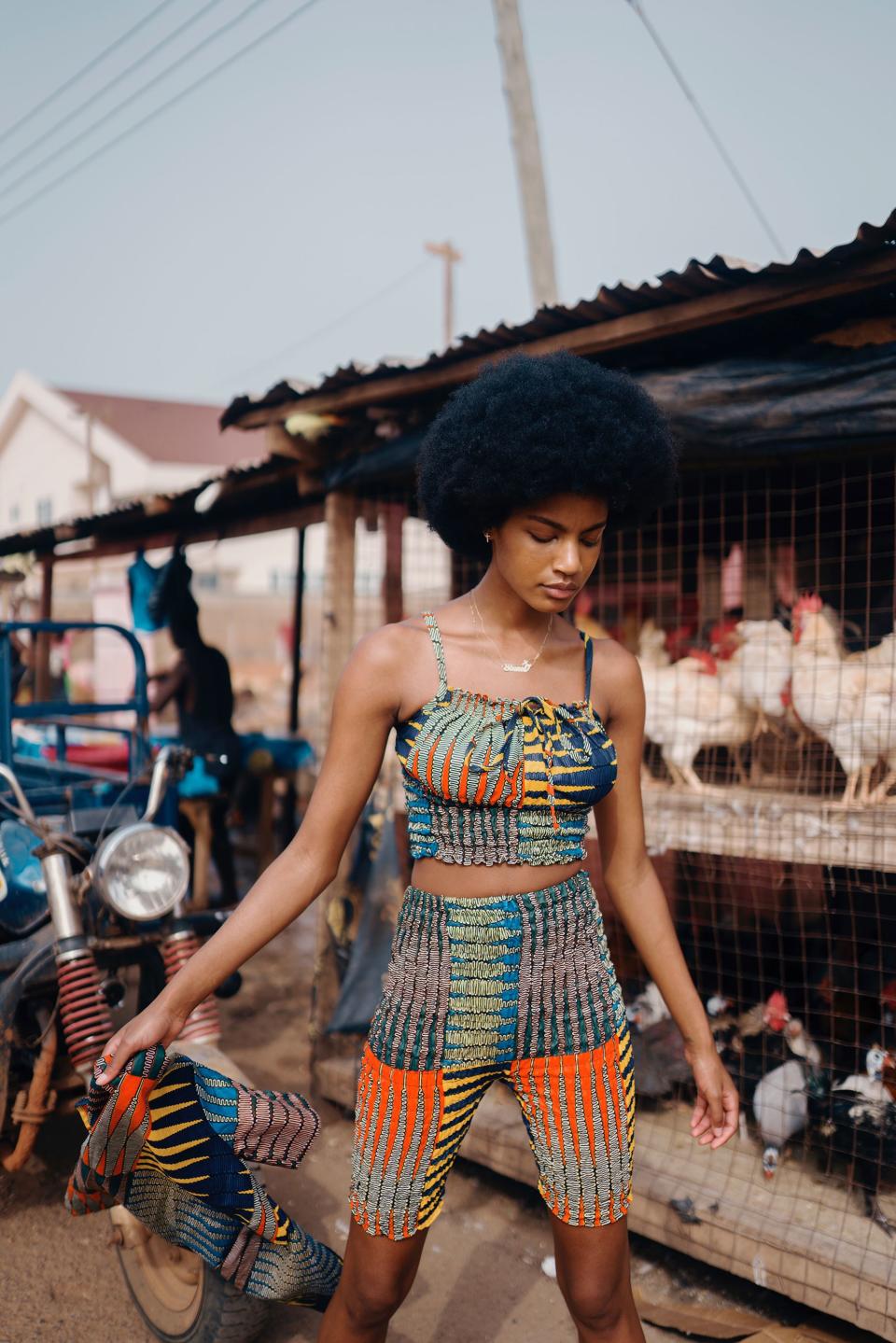
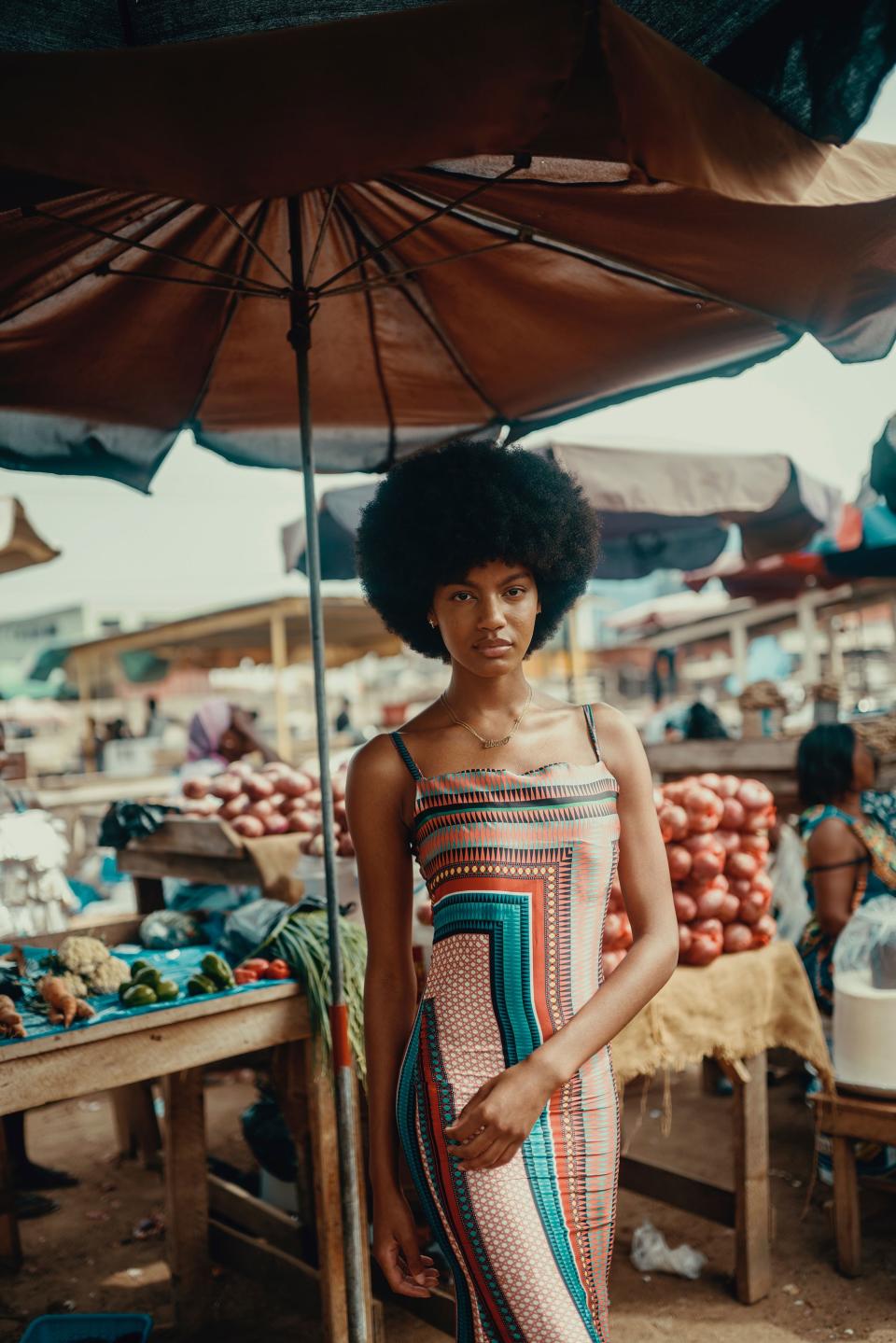
Though she had visited the continent before, traveling to South Africa in 2011, Davis regarded Ghana with special significance. “[Cape Town] is gorgeous and I love it there, but you don’t really get the sense that you’re in Africa,” she said. “In West Africa, you very much feel like, okay, now I’m here.” Upon arriving in Accra, Davis was immediately struck by a powerful sense of community that compelled her to dive in head-first. First up: the city’s thriving food markets. “Wherever I go in the world, I want to know what they eat; that’s a huge part of their culture and what I love about traveling,” she said. Local specialties like kelewele, banku, and grilled tilapia struck the deepest chord; so did the ebullient optimism surrounding her. “One of the most beautiful things I saw was the dancing, constant nonstop dancing,” said Davis. “You’re driving down the street and you see groups of kids or whole families having what looks like a dance party, in front of their houses or a church or [even] just on the side of the road. It’s pretty remarkable to see the happiness.”
The joyful energy lay so at odds with the negative messaging that defines Africa’s portrayal across Western media. “We’re often fed these images of African children with swollen bellies and flies buzzing around their heads, which is not an accurate representation of the culture and what is actually happening,” she said. “Granted, there are places where there is famine, but in Accra there’s such a rich sense of spirit and happiness—and a lot of development, too.” On the ground, Davis linked up with Very Temporary, which is dedicated to connecting African-American creatives with their West African counterparts. A full tour of Accra’s flourishing arts landscape ensued; Davis spoke on the group’s panel sessions and created stunning visuals of her own.
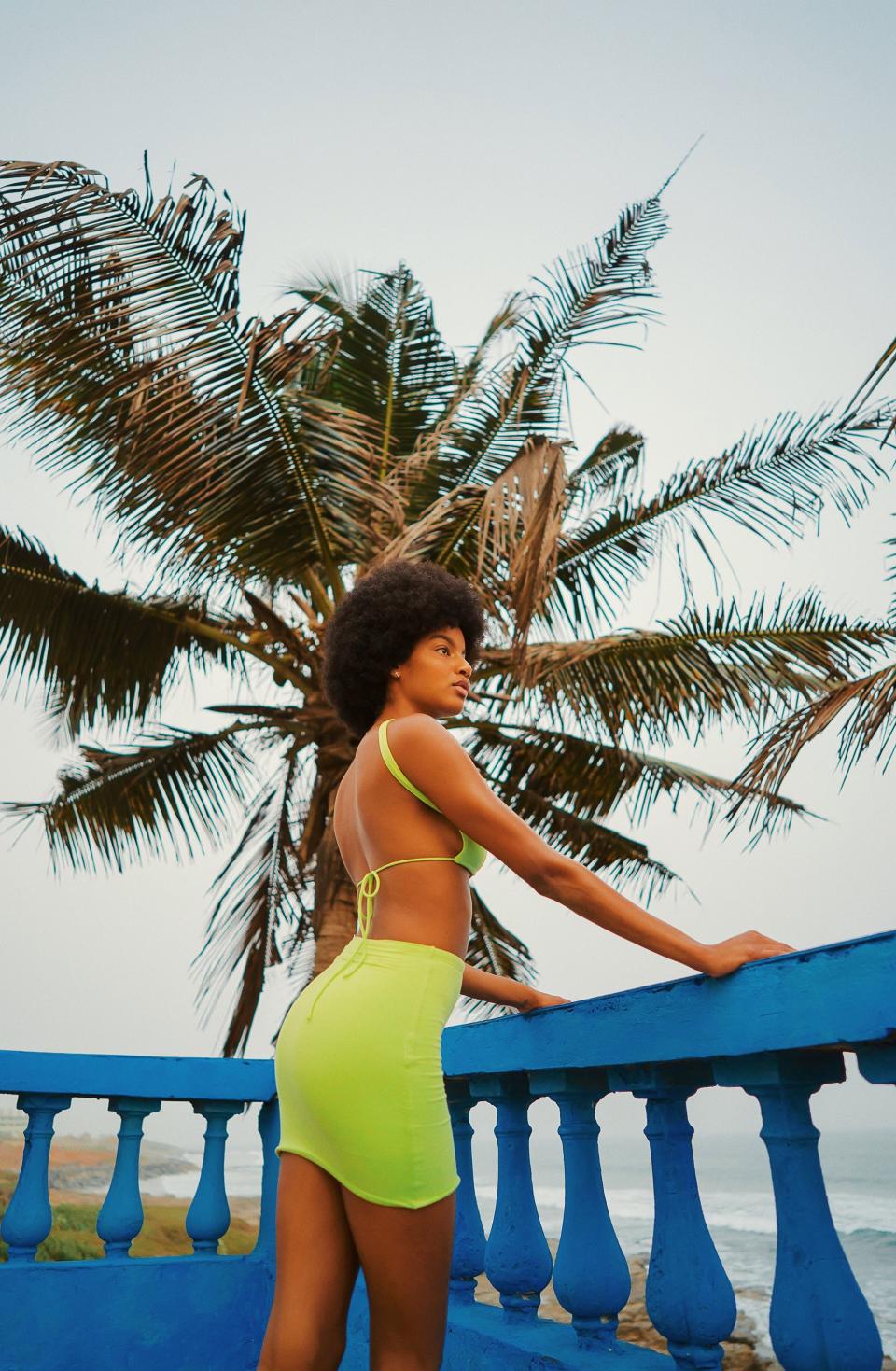
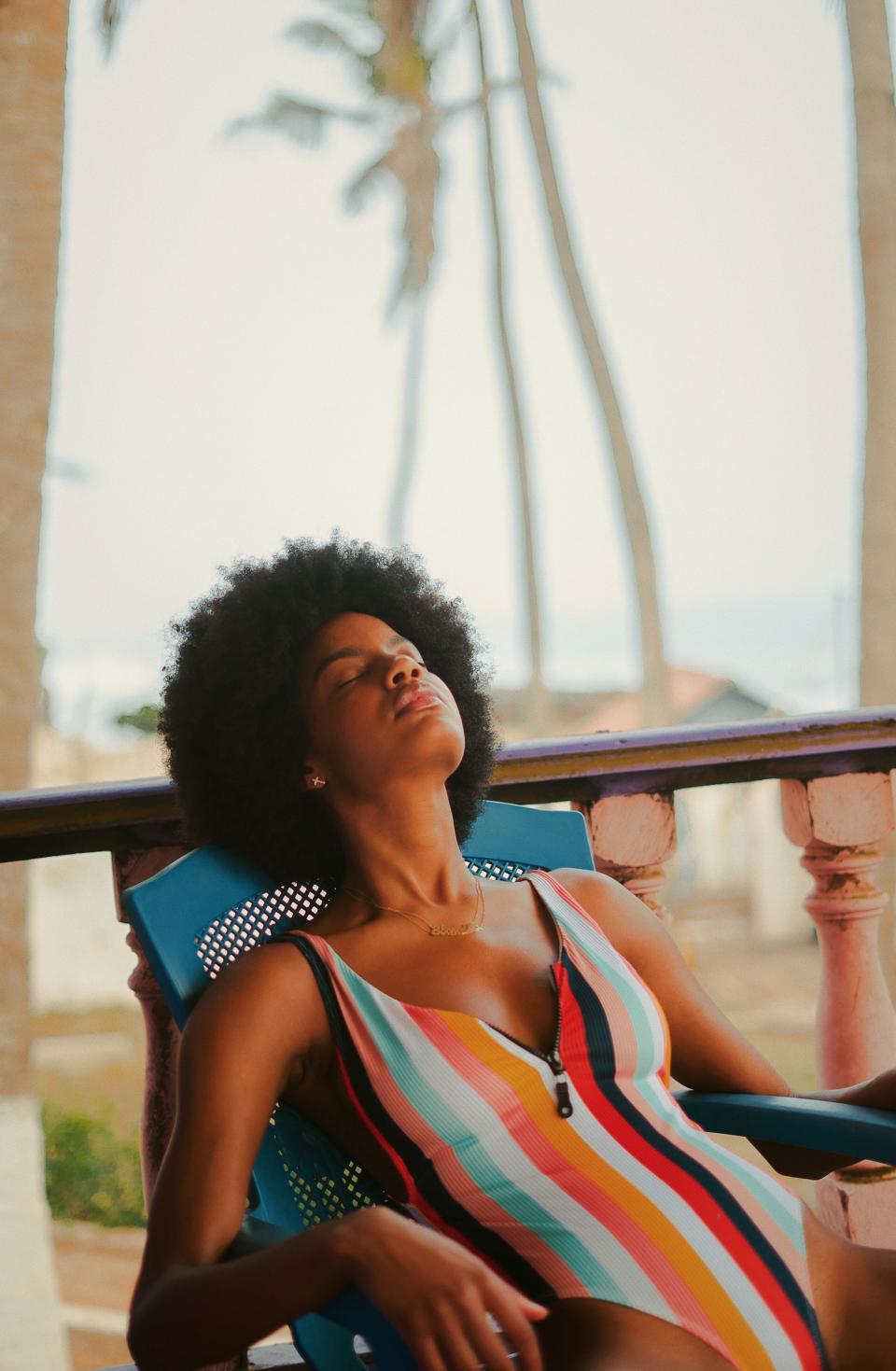
Over the course of two weeks, Davis turned each day into its own adventure, as she and photographers Amarachi Nwosu and Kofi Dua captured each moment, as in the gorgeous images seen here. A pit stop at an open-air market, where a wealth of locally handmade textiles and Ghanaian craft traditions sat on proud display, gave Davis the chance to put her modeling skills to work with an impromptu photoshoot. “I bought an outfit in the market and then I was like, ‘You know, I wish we had more,’ so I went back to the shop and the owner just let us change and shoot as many as we wanted,” said Davis, who was moved by the generosity. “It’s one thing to show up with your own clothes and stuff that you brought from home, but to actually be in that space and represent in something that came from there was incredibly impactful.”
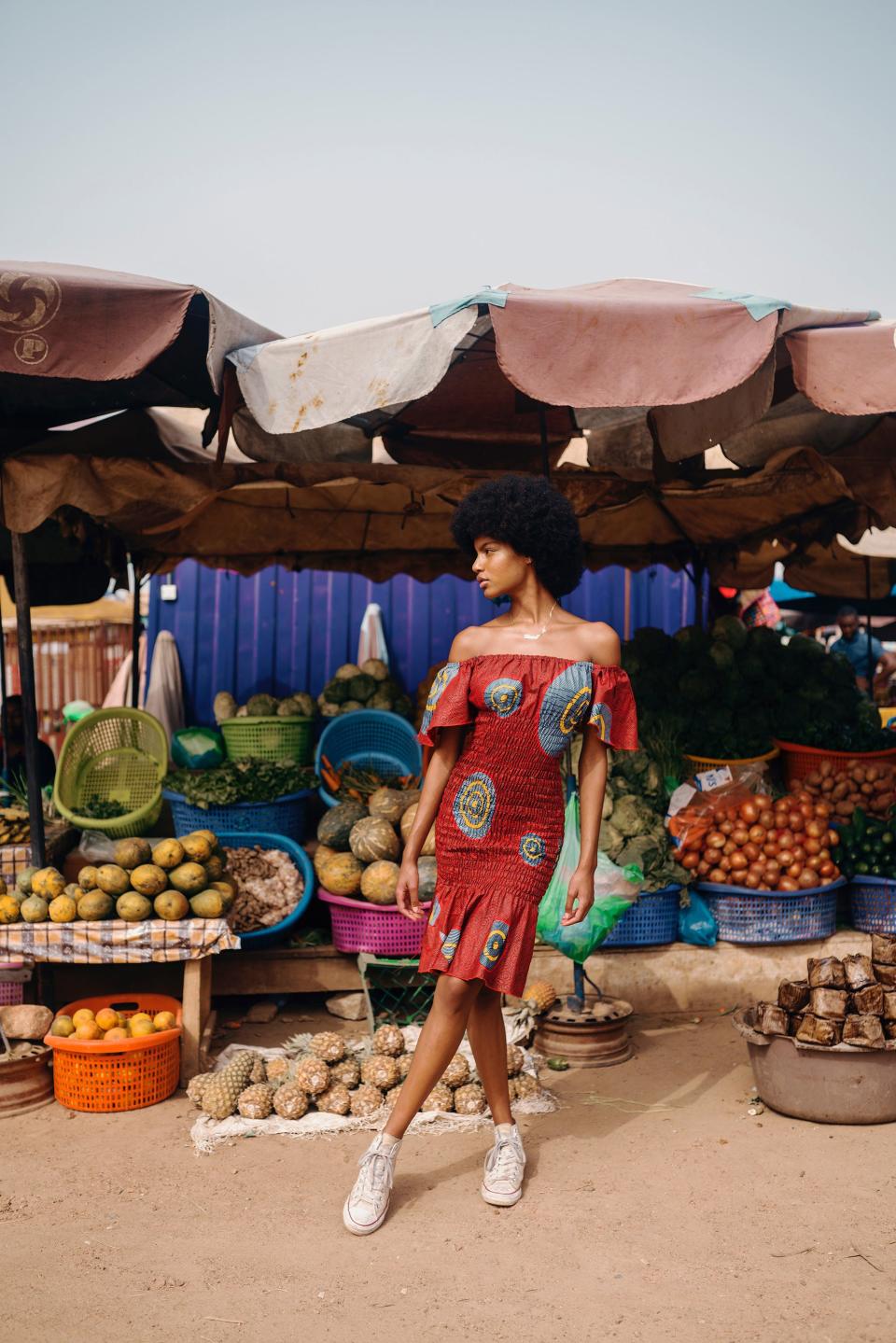
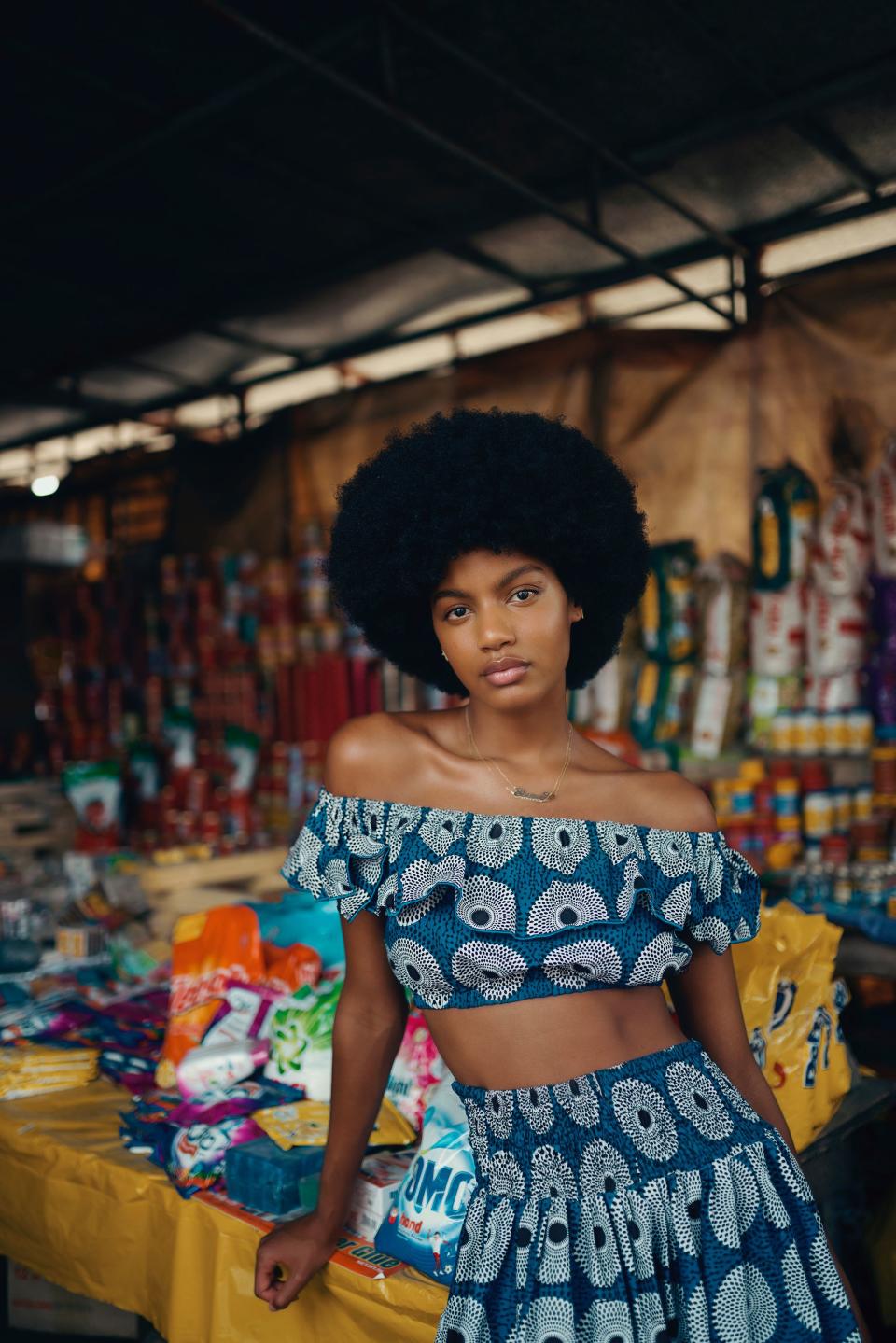
Even more profound was her trip to Cape Coast Castle, one of the many forts used to hold enslaved people before their painful voyage across the ocean. These were horrific structures, enclosed spaces where captives were forced to stay for months at a time. It was a place of suffering that Davis needed to see for herself. “That was a powerful, full-circle moment,” she said. “It was intense for me. I couldn’t imagine what it would be like to sit in that darkness. I was uncomfortable being down there for 10 or 15 minutes, and I couldn't imagine what it would be like to sit in that darkness for three months and have no idea what was going on.”
Her walk through those infamous dungeons, past signs bearing the words “Door of No Return,” was deeply emotional, but the experience only underscored her trip’s purpose—to follow in the footsteps of her forebears, no matter how difficult the path they traveled. “I went back as not only a free person but as an empowered person,” said Davis. “I’m free and not just because I’m not in [physical] chains—I don’t have the mental chains, either. I [visited] with a sense of self, and a sense of who I am beyond social structures and the narratives that dominate the ideas around blackness.”
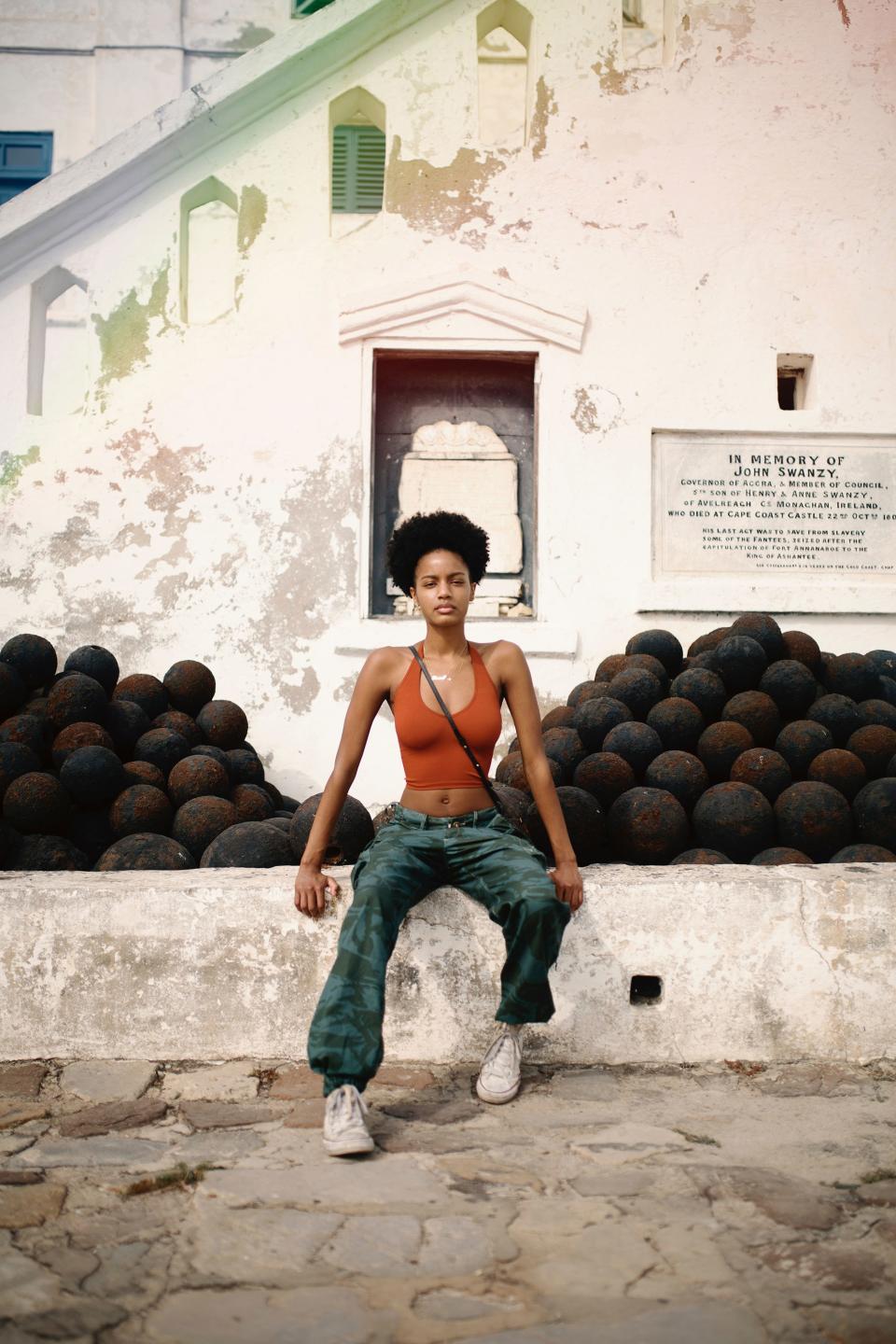
Now back in New York, Davis intends to visit every year, returning to Ghana and venturing to other West African nations. If her stunning travel photos encourage others to visit, all the better. “More than anything, I want to be a catalyst for healing, and I think these images are a start,” said Davis. “They show a lot of the truth of [modern] Africa. You get to see that it isn’t the way things are depicted in movies or television. Even the images of me on the beach, [in the West] you never get to see Africa as a place with beaches and culture—somewhere you’d want to spend time, but why not? It’s gorgeous!”
